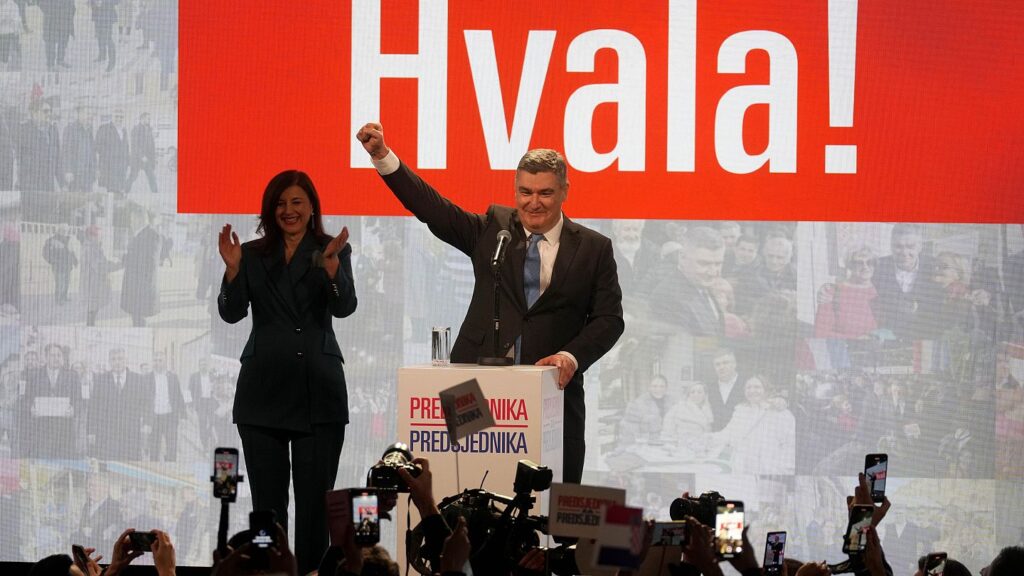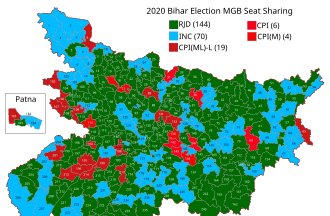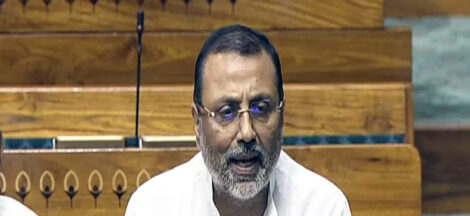By Satyaki Chakraborty
Is Europe finally giving a rebuff to the far right offensive to its democratic functioning by the Donald Trump-Elon Musk combination? The issue is now being discussed widely in European political circles after the resounding victory of the Social Democratic Party (SDP) candidate Zoran Milanovic in the January 12 presidential elections run off as well as the latest opinion polls in Germany on the eve of the national elections on February 23 this year.
Milanovic was reelected for the second term with 74 per cent votes as against the conservative right candidate Dragon Primorac who had the blessings of the Trump camp. The elections took place in the context of the furore in Europe over Elon Musk’s open support to the far right AfD in Germany as also the right wing Croatian Democratic Union (HDZ) whose candidate was Primorac. Milanovic., a known left winger among the SPD leaders fought focusing on the sovereign right of the European countries to govern as per the democratic verdict and strongly came out against Trump-Musk combo in his campaign.
The ruling government in Croatia is led by the HDZ, so that way, President Milanovoic does not have real powers to rule the country excepting influencing defence and security issues but his margin of victory gave a signal about the political mood of the Croatian people in the beginning of 2025 and this can have an impact on the coming national elections to Parliament in which SPD will be major contender after getting a big boost following President Milanovic’s massive victory margin.
In the same manner, the opinion polls on Germany’s elections in the latest round last week have revealed that that the centre-right CDU/CSU has topped with 32.3 per cent with far right AfD trailing it far behind at 18.3 per cent while the Social Democrats got 15.6 per cent, Greens 13.4 per cent, leftwing BSW 5.3 per cent and the official left De Linke 3.6 per cent and FDP 3.6 per cent.
The AfD launched a massive campaign after getting support from Elon Musk that it was the best party in Germany to rule the country after the February 23 elections. The AfD in its election manifesto called for full deportation of the immigrants. But its impact was not positive for the AfD. There is no chance of the AfD to be a part of any coalition government. The CDU/CSU, the traditional party of the centre-right and the party of the former chancellor Angela Merkel is now best positioned to lead a coalition government. The issue is who will be the partners. Political observers feel that the AfD share may go down further in the coming days before February 23 since Trump-Musk support to the AFD has alienated many nationalistic supporters of the AFD who did not like U.S. interference in German elections.
Germany, the biggest economic power of the Western nations in Europe was plunged in a major political crisis as the shaky three party coalition led by the Chancellor Olaf Scholz of SPD became a minority in the Parliament last month after the partner Free Democratic Party withdrew its support to the Scholz government.
The Scholz coalition has been ruling by taking support of 91 members of FDP and 117 members of Green Party. SPD has its own strength of 207 members. So , in a house of 733 members, the three party coalition had a clear majority. Now with the withdrawal of FDP’s 91 members, the Scholz government has the support of only 324 members as against the needed majority of 367 members.
Right now, in German Parliament, the opposition CDU/CSU has got 196 members while the far right AfD which is a surging force in the latest provincial elections, has 76 seats. The Left group led by Die Linke has got 28 seats while the split away group of Die Linke BSW has got 10 seats. There are eight non-attached members. Chancellor Scholz had to prepone the national elections from October this year to February 23 after his government lost non-confidence motion.
The latest political turmoil is going to stay till the February 23 elections and even possibly after and this has given a fresh opportunity to the far right AfD to expand its base and going to the German people with its campaign plank against refugees and immigrants as also the promise of creating jobs for the German youth, The CDU/CSU which ruled Germany for many years led by prominent chancellors like Angela Merkel is preparing for the coming elections Friedrich Merz, the CDU leader is aspiring to contest for the chancellor’s position. He is trying to see that his nationalistic position by standing against Elon Musk’s interference in Germany’s polls, drives away a section of supporters of AFD to his camp.
The SPD chancellor Olaf Scholz is also exploiting the Trump-Musk attack against him in his campaign by making the point that only coalition led by SPD can look after German interests and take a position against U.S. interference in the coming polls. But indications suggest that the SPD’s fortunes may not suddenly improve. In fact poll watchers are saying that the CDU/CSU and BSW may improve their respective positions. Greens and FDP are showing decline in their popularity. The most affected has been the FDP which left the Scholz coalition government creating the present political crisis. Five weeks more are left for the polling day in Germany. The outcome will have major impact in shaping the policy of European Union in 2025. (IPA Service)




 Delhi Slums And Unauthorised Colonies Possess The Key To Winning Delhi
Delhi Slums And Unauthorised Colonies Possess The Key To Winning Delhi 